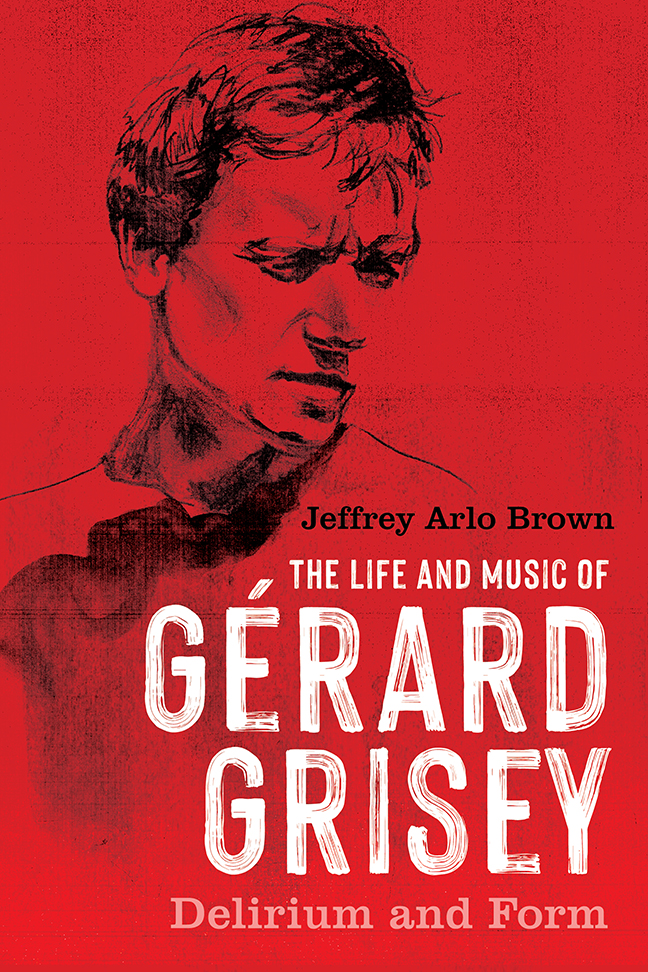Book contents
- Frontmatter
- Contents
- List of Illustrations
- Acknowledgments
- One The Lost Voice (1946–61)
- Two The Carnal Shell (1961–65)
- Three The Rhythm of Love (1965–67)
- Four Exchange Beyond Language (1968–70)
- Five The Silence that Attracts (1970–72)
- Six The Sensual Embrace (1972–74)
- Seven Ultimate Fusion (1974–78)
- Eight Astarte (1978–79)
- Nine Extreme Pleasure, Extreme Pain (1980–82)
- Ten The Grains of Sound (1982–86)
- Eleven Absolute Love (1986–88)
- Twelve Seduced by the Star (1988–91)
- Thirteen Suggestions of the Infinite (1991–96)
- Fourteen Nut (1996–98)
- Fifteen Berceuse
- Appendix: Recordings of Music by Gérard Grisey
- Bibliography
- Index
Seven - Ultimate Fusion (1974–78)
Published online by Cambridge University Press: 17 December 2023
- Frontmatter
- Contents
- List of Illustrations
- Acknowledgments
- One The Lost Voice (1946–61)
- Two The Carnal Shell (1961–65)
- Three The Rhythm of Love (1965–67)
- Four Exchange Beyond Language (1968–70)
- Five The Silence that Attracts (1970–72)
- Six The Sensual Embrace (1972–74)
- Seven Ultimate Fusion (1974–78)
- Eight Astarte (1978–79)
- Nine Extreme Pleasure, Extreme Pain (1980–82)
- Ten The Grains of Sound (1982–86)
- Eleven Absolute Love (1986–88)
- Twelve Seduced by the Star (1988–91)
- Thirteen Suggestions of the Infinite (1991–96)
- Fourteen Nut (1996–98)
- Fifteen Berceuse
- Appendix: Recordings of Music by Gérard Grisey
- Bibliography
- Index
Summary
On his return from Rome, Grisey was confronted with a harsh though not entirely unexpected reality. Composition didn't provide enough income for him to support Jocelyne and himself; he would have to work. Between the fall of 1974 and the spring of 1980, the composer taught at a variety of music schools in the Paris area. This was a temporary fix which lasted too long and had inherent frustrations. Although Jocelyne earned more money than Grisey in her new position as a social worker, the two incomes still didn't add up to much: “The financial situation was very difficult,” she said. Grisey's degree from the Conservatoire National Supérieur didn't qualify him to teach composition at the university level, which meant he was stuck working at conservatoires d’arrondissement.
Back in France, Grisey took a post teaching musical analysis at the Centre Musical Edgar Varèse, in Gennevilliers, outside Paris. In 1975, he began giving courses in analysis and harmony at the Conservatoire Municipal de Romainville, in another suburb. Between 1978 and 1979, he also returned to the Sorbonne to teach as an adjunct, but his contract was not renewed (it's unclear why not). This precarious work neither alleviated Grisey's financial worries nor allowed him sufficient time and calm to compose. At one point, Grisey was up for a promotion at a local music school but declined because it would have involved twenty hours of work a week. “I was trying to protect him,” Jocelyne said. “He needed so much time to compose.”
In 1972, before the couple had left for Rome, Grisey's parents had given them a sum of money for a down payment on an apartment in Paris. But the recession of 1973–74 hit the franc hard, and when they returned from Rome, they found the gift from Grisey's parents was worth far less than it had been. Back in France, Grisey and Jocelyne spent six months living with a friend, an architect named Claude Leclerc, a situation which could only have contributed to the overall feeling of precarity.
Meanwhile, Grisey continued his post-Conservatoire education. On October 26, 1974, he began an acoustics course at the Sorbonne's Laboratory of Musical Acoustics at the Place Jussieu, a hulking modern tower in stark contrast to the nearby Latin Quarter. His professor was the acoustician Émile Leipp, whose book Grisey had read in 1972.
- Type
- Chapter
- Information
- The Life and Music of Gérard GriseyDelirium and Form, pp. 108 - 124Publisher: Boydell & BrewerPrint publication year: 2023

